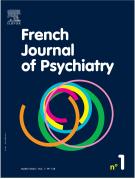Evidence for the association of the nicotinic acetylcholine receptor CHRNA5/A3/B4 gene cluster and nicotine dependence in a young population of students - 10/09/21

Highlights |
• | The nicotinic acetylcholine receptor CHRNA5/A3/B4 gene cluster is involved in tobacco dependence. |
• | These cholinergic genes increase the risk of tobacco dependence in adolescents. |
• | Using genetic markers early to detect at-risk adolescents, is possible, potentially facilitating preventive approaches. |
Summary |
Background |
The CHRNA5/A3/B4 acetylcholine receptor gene cluster has been strongly and repeatedly associated with tobacco dependence, but the studied populations were usually made of adults, with frequently associated somatic comorbidities (such as lung cancer).
Methods |
Four SNPs within this gene, previously associated with tobacco dependence, were tested in a large population of untreated, young French students (average age, 20 years old).
Results |
We found strong evidence (surviving corrections for multiple comparisons) that different genetic variants within the studied cluster of genes (rs637137, rs3813567, and an ‘AGG’ haplotype based on rs637137, rs3813567 and rs16969968) are able to distinguish the presence of tobacco dependence in adolescents.
Conclusions |
The present results argue in favor of the possibility to use different genetic markers of the CHRNA5/A3/B4 acetylcholine receptor gene cluster in adolescents, to potentially help more specifically those that need it most (as carrying risk alleles), interventions leading to more benefits when performed in young subjects, or proposed early in the process of tobacco use disorder.
Le texte complet de cet article est disponible en PDF.Keywords : Smoking, Tobacco, Addiction, Vulnerability, Gene, Cholinergic
Plan
Vol 2
P. 49-53 - décembre 2020 Retour au numéroBienvenue sur EM-consulte, la référence des professionnels de santé.
L’accès au texte intégral de cet article nécessite un abonnement.
Déjà abonné à cette revue ?

